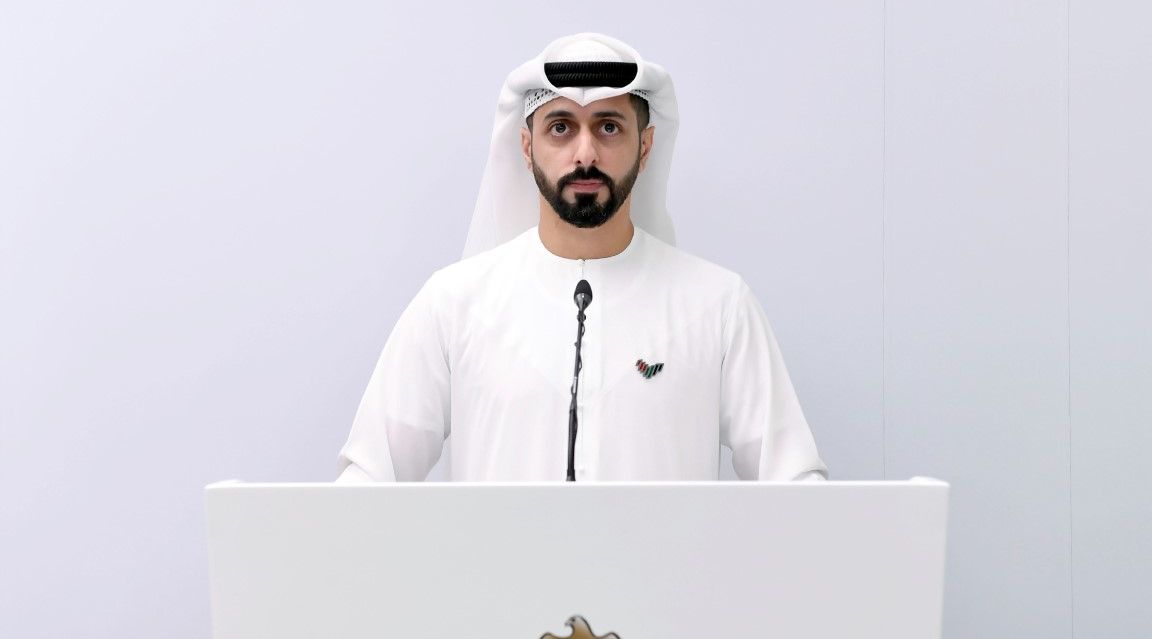Dr. Omar Abdulrahman Al Hammadi, Official Spokesman of the UAE Government, recently addressed a media conference, stating that a total of 803,579 COVID-19 tests were conducted around the country this week. He shared the details of the data and statistics collected by relevant authorities between October 28 to November 3, 2020, highlighting the current health situation and efforts taken by various departments in limiting the spread of the virus.
Dr. Al Hammadi explained that there has been a three percent increase in the number of tests conducted as compared to the previous week. He further added that the data shows a 15 percent decrease in the number of confirmed cases in the UAE.
The UAE's rate of positive COVID-19 cases is 1 percent, which is significantly lower than the European Union (EU) where the rate is 9.1 percent. The UAE's rate of confirmed cases is also lower than the rate of the Organisation for Economic Co-operation and Development (OECD) at 6.9 percent and the MENA (Middle East and North Africa) region's rate at 6.6 percent, he added.
The UAE witnessed a 9 percent decrease in the number of recoveries during this week, while the death rate stayed stable at 0.4 percent, which is among the lowest in the world as compared to the EU at 2.6 percent, MENA at 2.4 percent and 3.0 percent in the OECD.
During the briefing, Dr. Al Hammadi also responded to the queries of the public and clarified facts about the pandemic crisis. He asserted that there is a possibility of contracting Coronavirus after recovering from it, adding that people gain immunity from viral diseases in two ways - one through contracting the virus and becoming immune to it by producing antibodies; second by taking a vaccine against the disease.
Noting that a vaccine is a much safer solution, he added that medical experts across the world are working to develop a potential vaccine to combat COVID-19. He affirmed that it is theoretically possible that a person can contract the virus after recovering from it or even after taking the vaccine because the antibodies developed in the body have various levels of validity that may vary from one disease to another.
While the Coronavirus does not live longer than 11 months, it is difficult to analyse an estimated figure for reinfections, Al Hammadi noted. He further stated that scientists and researchers are conducting time and clinical monitoring to figure out the period of immunity a person acquires after recovery from the disease or after getting vaccinated.
Responding to a question on whether a person with COVID-19 symptoms should stay at home and take medications to generate immunity, he explained that it is important for the person to visit a doctor first for diagnosis and assessment, adding that it is difficult to differentiate between regular flu and COVID-19 without laboratory tests.
Al Hammadi explained various factors that must be considered while carrying out an assessment for the viral disease, including patient's age and if they are suffering from any chronic diseases such as obesity, diabetes, cancer, cardiac diseases, or kidney disease. He added that a well-thought decision will be taken only after diagnosis, noting that people with mild cases of infection can be quarantined in relevant facilities without the need for admitting them to a hospital.
However, for moderate and severe cases of infections, Al Hammadi suggested that hospital treatment is necessary where they can be thoroughly monitored by the health specialists. If any serious symptoms occur, the patients can be placed in intensive care and ventilators, if necessary.
He further noted that it is the responsibility of the doctors in charge to decide if a patient has contracted the disease or not and suggest the best healthcare methods for their well-being. At the same time, he warned the public of not following any false information or undergo any unlicensed treatment without the consultation or knowledge of official health centres.
WAM
 AR
AR UR
UR
